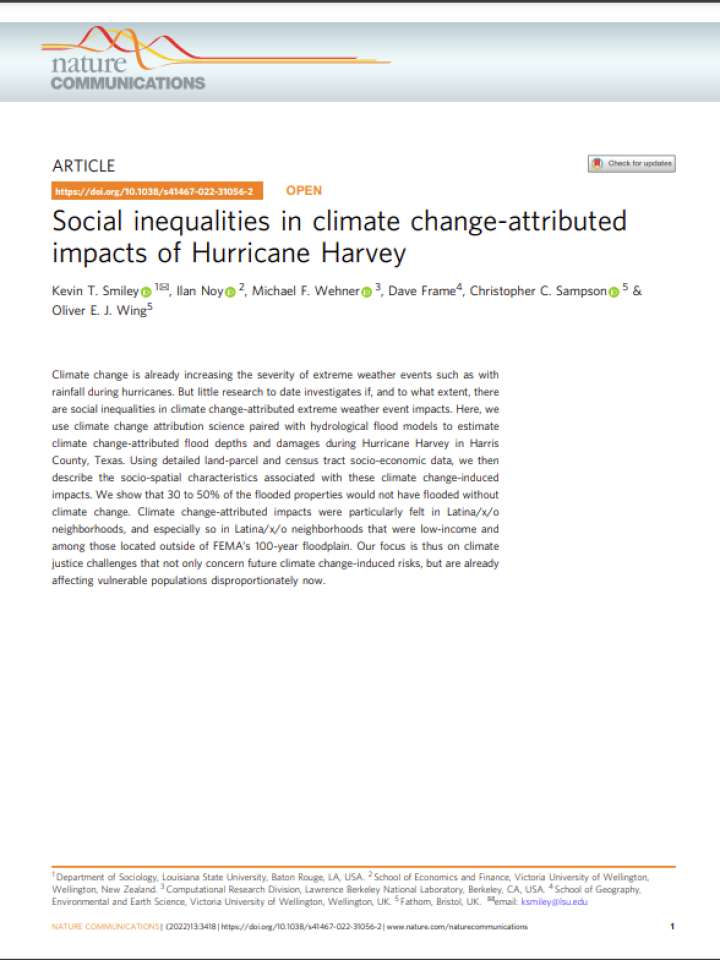Social inequalities in climate change-attributed impacts of Hurricane Harvey
This research investigates if, and to what extent, there are social inequalities in climate change-attributed extreme weather event impacts. Here, the researchers use climate change attribution science paired with hydrological flood models to estimate climate change-attributed flood depths and damages during Hurricane Harvey in Harris County, Texas. Using detailed land-parcel and census tract socio-economic data, they describe the socio-spatial characteristics associated with these climate change-induced impacts.
The analysis finds strong evidence for climate change-attributed flooding: it is estimated that 30 to 50% of properties in Harris County would not have flooded if not for the increased rainfall due to climate change. Importantly, there is also evidence for social inequalities in this climate change-attributed flooding. Most notably, parcels in Latina/x/o neighborhoods disproportionately experienced these higher levels of flooding. All of these suggest that low-income Latina/x/o neighborhoods were more likely to be exposed to climate change-attributed flooding in Hurricane Harvey, at the same time that residents in Latina/x/o neighborhoods were also less likely to be forewarned of the flood risk to which they may be exposed, as they were less likely to be located in the SFHA floodplains. Additionaly, the findings for neighborhood median income show that more economically well-off neighborhoods experienced greater impacts.
Explore further
